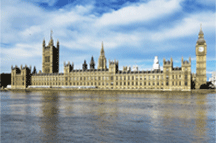On Wednesday 22 January, the Lobbying Bill returned to the House of Commons for their Consideration of Lords Amendments. The Lords amendments and other documents relating to the Bill can be viewed online.
Graham Allen (Lab) opened the discussion by reiterating criticism, witnessed since the Lobbying Bill first entered Parliament the day before summer recess in 2013. Mr Allen claimed he did “not believe that it was possible to have a shorter period between consideration yesterday in the second Chamber and consideration today in Parliament. Could the House have squeezed that period even more?”, continuing by calling the Bill “an absolute disgrace” and agreeing with Luciana Berger (Lab) that the process has been an “affront to our democracy”.
Caroline Lucas (Green) later questioned whether “Parliament is being made a laughing stock by the fact that we are trying to concertina such a complex issue into such a short time? Does that not undermine any credibility this Government had? They are supposed to be championing the big society, but they are trying to muzzle it, both in the Bill and in the process they are setting out here today.”
On Lords amendment 1, which seeks to bring Special Advisors within the Bill’s boundaries, Mr Allen claimed it would only be “self-evident and sensible” that “senior civil servants should be included in the group that is required to make a declaration in respect of being lobbied”. According to Mr Allen, “[e]xcluding the very people who are lobbied the most in the Government will render the Bill an absolute laughing stock. We all know the truth of this matter.”
The amendment, however, was defeated by 311 to 258 and replaced by a Government amendment to allow Special Advisors to be included in the Bill at a later stage. The Government amendment is, according to Deputy Leader of the House of Commons Tom Brake (LD), “a pragmatic response to the Lords’ concerns”.
The Lords’ amendment that requires third-party consultants to state in their statutory registry entries whether they comply to a voluntary code of conduct in relation to lobbying, was agreed to by the Commons without being put to a vote.
The House then discussed Part 2 of the Bill. According to one of the PRCA’s coverage by tweets during the debate, “Time for considering Part 1 of the #LobbyingBill pitifully short, aptly reflecting how rushed this entire process has been.”
The Leader of the House of Commons and sponsor or the Bill, Andrew Lansley (Con), pointed out that as many as 100 amendments to Part 2 had returned from the Upper House and all but three were accepted.
As the NCVO described in their Briefing for MPs, urging them to agree to amendments tabled by Government and Peers preceding the debate, “[t]he key change is an increase of the registration thresholds (to £20,000 in England and £10,000 in Scotland, Wales and Northern Ireland).”
Lord Harries of Pentregarth’s amendment to exclude background staff costs from the Bill was defeated in the House of Commons by 310 to 278.
However, according to the NCVO, “Much of the risk to charities from this legislation has now been averted.” They said they were “grateful that the government has listened to the concerns charities have raised in recent months.”














